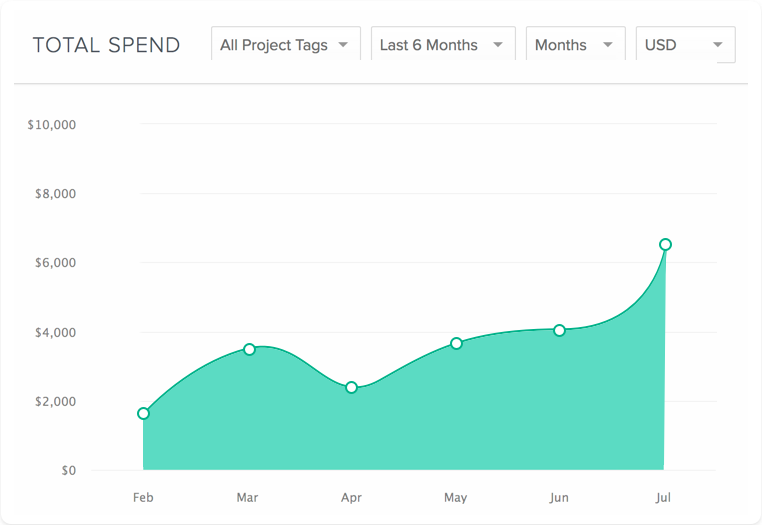Who wouldn’t want to be his own boss, set his own hours, and sign contract templates for work with who he wishes? Freelancing sounds like a dream come true, and – for many – it is a huge improvement over long commutes and uninspired jobs with no hope of advancement.
Before you start thinking that it’s a simple process, however, it’s important to know that most freelancers aren’t able to quit their day job for some time. Others choose to keep their 9-5 for stability or benefits, and never really transition over to freelancing.
Can it be done? Of course. Here is what you need to do to be a thriving freelancer in today’s gig economy.
1. Always be Working
It can be hard to set boundaries when you work for yourself, and this advice may not seem healthy. But even if you’re very good about not doing project work on your birthday or keeping Sundays open for family, your mind will always be a little bit focused on work. That’s because daily life is excellent inspiration for the career you’re building.
Whether you get an “a-ha” moment in the shower that solves that critical user error or you bump into someone on the train who introduces you to an amazing new client, the edges of your work life will blur, and you should welcome this. Understand that opportunities happen all the time – and not just when you’re seated at your desk with your projects in front of you. Embrace these moments. They can make you more competitive and successful.
Understand that opportunities happen all the time – and not just when you’re seated at your desk with your projects in front of you.
Most successful freelancers keep a notebook, planner, or other brainstorming tool to jot down each and every idea as they happen. Most won’t turn out to be anything, but the good ones are not something you would have wanted to forget! Set an appointment each month to go through the ideas and pick the best ones for actionable next steps.

2. Ask for Work
If you’re too shy, too proud, or too content, you may not make it as a freelancer. That’s because it’s largely about the “hustle.” You are there to sell a service and no one is just going to walk up to you and beg you to take their money. While you shouldn’t sound like an annoying MLM marketer who bugs their friends to buy things they don’t need, you should be looking at the following connections for possible work:
- Past employers
- Work colleagues
- College friends
- Anyone who has given you a business card
- People you have connected to on LinkedIn
- Facebook friends
- Current clients
You’ll want to be sure that you approach each group of people with some strategies unique to them. (No begging for work through DMs to everyone you know on Facebook.) A simple update every few months saying “I’ve really enjoyed doing XYZ project for ABC company this year, and I’ve had some room open up on my calendar for similar work. If you’ve been considering this project, I’d be happy to send you a proposal!” is perfect.
One other way to get more work is by continually following up with current clients. Don’t let 2 months go by with radio silence. You can send a quick note asking how they are doing, or an email asking for testimonials, and if they have a need for some help with projects. Something like “I know you are usually very busy in Q4. Let me know how I can help!” will suffice.
3. Learn, but also Do
There are a lot of freelance gurus out there with savvy tactics to finding work and staying competitive. There are also quite a few self-proclaimed experts who don’t really know much. This makes it especially important to moderate the time spent studying, learning, and being mentored. A good freelance role-model should be able to demonstrate what they’ve done (not just talk about it), and you should be able to pick up on the basics by reading what they offer for free.
That said, if you want to spend more for a course or mastermind group, that’s OK, too. Just understand that these learning groups can be a time suck. Many of the members spend much of their day scouting out tips to help them earn more quickly, but they rarely follow through and put the wisdom into practice.
Beginning freelancers should spend an hour putting their skills into practice for every hour they spend learning. In the beginning of your career, it’s vital to get out there, make yourself known, and pitch your services. You can’t do that if you’re always on webinars or coaching calls. Keep track of what you spend your time on every hour by making a timesheet. You won't regret it.
4. Keep an Eye on the Money
If you’ve never worked for yourself before, there can be quite the steep learning curve when it comes to finances. You’ll have the matter of taxes, for one, and it’s more important than ever to keep note of every dollar of income, as well as expenses. Keep meticulous records for taxes, and use tax planning software to estimate how much you’ll owe to the IRS each year. If you do end up owing a fair bit, it’s best to start paying estimated quarterly taxes as soon as you can. There is a hefty penalty for tax underpayment after the first year.
You’ll also need to be tracking the money coming in. Clients’ payment terms can be all over the place; some will send you an electronic funds transfer after just 2 weeks of invoicing, while others can wait 90 days or more before mailing a check. Note that it’s best to set favorable terms in the proposal phase of your relationship, but if it’s not up to you, the best thing you can do is watch those payment dates with a careful eye. Send reminders, as needed and take full advantage of a professional invoice service, such as the one offered by Bonsai.
It’s also vital to watch expenses. It’s amazing how much service fees can add up. From your custom domain to app-building software, all those monthly charges eat into your profit. Buy only what you’ll need when starting out, and if you have to purchase something special for a client, see if you can get on a monthly service plan. Annual plans are cheaper per month, but only a good buy if you’ll be a long-time customer.

5. Change Your Plans, Keep Your Brand
Like most businesses, freelancing usually starts with a business plan. If you don’t have one of those, a simple statement of what you want to focus on, the services you’ll offer, and your pricing model will do. Put it down on a piece of paper, keep it somewhere handy, and refer to it often when you work.
If you get approached to do something that goes outside of that plan, it may be a bad opportunity. It may also mean that you need to change your plan. As you grow, you may decide to charge more, narrow your service offerings, or serve a different niche. All are appropriate changes, provided you keep the things that makes your business special (also known as you “brand”).
You should review your business plan at least once a year; many freelancers do this as part of a New Year’s ritual or at tax time. If you want, you can also do a review when there’s a change in the market that necessitates it or an opportunity that’s too good to pass up. It’s just important that you don’t rely on the same stale plan year after year. The world will change, and so will your clients.
There is no definite strategy that will work for every freelancer, but the above tips will build consistency and common-sense into your business.
If you’ve never worked on your own before, the sudden freedom and promise of opportunity can make it hard to focus. Treat your day like every hour is worth something, and you’ll find it easier to employ the strategies that successful freelancers swear by.
**Looking for a freelancer solution designed to help you do more? Sign up for Bonsai's free 15-day trial to send winning proposals to your clients, create bulletproof contracts, and get paid on time!**







